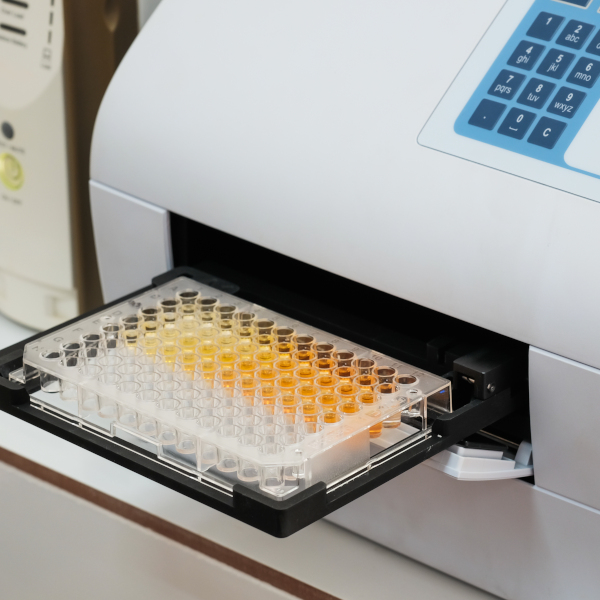Functional Medicine - Seattle, WA
World-Class Functional Medicine Doctors
The doctors at Cascade Integrative Medicine provide functional medicine services to the Greater Seattle area including Tacoma, Everett, Bellevue, Kirkland, Redmond as well as Eastern Washington including Spokane. Functional medicine is an innovative approach to healthcare that focuses on uncovering the root causes of illnesses. Our physicians work closely with patients to create personalized, evidence-based treatment plans. By considering the unique genetic, environmental, and lifestyle factors of each individual, we aim to optimize health, prevent diseases, and promote overall well-being. Our doctors accept appointments that are both in-person and virtually through telemedicine.
Functional Medicine - Seattle, WA
World-Class Functional Medicine Doctors
At Cascade Integrative Medicine in Issaquah, we specialize in functional medicine, an innovative approach to healthcare that focuses on uncovering the root causes of illnesses. Our expert doctors work closely with patients to create personalized, evidence-based treatment plans. By considering the unique genetic, environmental, and lifestyle factors of each individual, we aim to optimize health, prevent diseases, and promote overall well-being. Trust our team to guide you towards a healthier, more functional life through a comprehensive and holistic approach to healthcare.

Functional Medicine Answers the Question: Why?
We’re not just interested just what ails you. We want to understand why you feel this way. We use functional medicine to identify the root cause of your symptoms, so that we can provide you with sustainable treatments that prevent the appearance of your symptoms in the first place.
One important way that functional medicine differs from traditional medicine is that functional medicine involves a comprehensive and personalized assessment of your health. Our doctors will review and consider your medical history, genetics, lifestyle, and environmental factors to construct a holistic picture of your health. This in-depth analysis allows us to identify patterns, connections, and potential triggers that may be contributing to your illness.
Functional Medicine Testing That’s State-Of-The-Art

We use the latest in cutting-edge diagnostics to provide you with answers to questions that are not even considered in a typical visit to the doctor. We have an arsenal of diagnostic tests at our disposal to shed light on everything from gastrointestinal dysfunction to neurotransmitter homeostasis.
Some common diagnostic tests include:
- Comprehensive Blood Panels: Functional medicine often involves extensive blood testing to assess various markers such as hormones, immune function, inflammation, nutrient levels, and more. These panels can reveal imbalances or deficiencies that may contribute to health issues and typically are much more comprehensive than the basic blood panels that may be ordered in a traditional doctor’s visit.
- Genetic Testing: Examining a patient’s genetic makeup through testing can provide valuable information about, for example, their susceptibility to certain conditions or how their body metabolizes nutrients. Genetic testing helps identify potential genetic factors that may influence health outcomes.
- Advanced Hormone Testing: Hormones play a crucial role in regulating various bodily functions and do so differently throughout life. Our doctors may use specialized tests to carefully assess hormone levels and identify any imbalances that could be contributing to a your symptoms, such as fatigue, mood swings, or weight gain.
- Nutritional Analysis: Nutrient deficiencies can contribute to a range of health issues. Your doctor may use nutrient analysis tests to evaluate a patient’s nutritional status, helping to identify deficiencies or imbalances that can be addressed through dietary modifications or nutritional supplementation.
- Microbiome Analysis: The gut microbiome plays a crucial role in overall health, influencing digestion, immune function, and more. Your doctor may use tests to analyze the composition of the microbiome, helping to identify any dysbiosis or imbalance in gut bacteria, such as small intestinal bacterial overgrowth (SIBO).
- Environmental Toxin Screening: Exposure to environmental toxins can significantly impact health. Your doctor may use environmental medicine testing to assess levels of toxins in the body, providing insights into potential environmental contributors to a patient’s condition.
Functional Medicine Testing That’s State-Of-The-Art
Our functional medicine doctors use the latest in cutting-edge diagnostics to provide you with answers to questions that are not even considered in a typical visit to the doctor. We have an arsenal of diagnostic tests at our disposal to shed light on different physiological systems that may influence your health or illness. Functional medicine testing is comprised of a range of diagnostic tools to assess various aspects of the body’s function, such as hormone levels, nutrient status, gut health, immune function, and many others. By combining information from these various tests, our doctors can create a more personalized treatment plan that targets the underlying health deficiencies.

Some common diagnostic tests include:
- Comprehensive Blood Panels: Functional medicine often involves extensive blood testing to assess various markers such as hormones, immune function, inflammation, nutrient levels, and more. These panels can reveal imbalances or deficiencies that may contribute to health issues and typically are much more comprehensive than the basic blood panels that may be ordered in a traditional doctor’s visit.
- Genetic Testing: Examining a patient’s genetic makeup through testing can provide valuable information about, for example, their susceptibility to certain conditions or how their body metabolizes nutrients. Genetic testing helps identify potential genetic factors that may influence health outcomes.
- Advanced Hormone Testing: Hormones play a crucial role in regulating various bodily functions and do so differently throughout life. Our doctors may use specialized tests to carefully assess hormone levels and identify any imbalances that could be contributing to a your symptoms, such as fatigue, mood swings, or weight gain.
- Nutritional Analysis: Nutrient deficiencies can contribute to a range of health issues. Your doctor may use nutrient analysis tests to evaluate a patient’s nutritional status, helping to identify deficiencies or imbalances that can be addressed through dietary modifications or nutritional supplementation.
- Microbiome Analysis: The gut microbiome plays a crucial role in overall health, influencing digestion, immune function, and more. Your doctor may use tests to analyze the composition of the microbiome, helping to identify any dysbiosis or imbalance in gut bacteria, such as small intestinal bacterial overgrowth (SIBO).
- Environmental Toxin Screening: Exposure to environmental toxins can significantly impact health. Your doctor may use environmental medicine testing to assess levels of toxins in the body, providing insights into potential environmental contributors to a patient’s condition.

